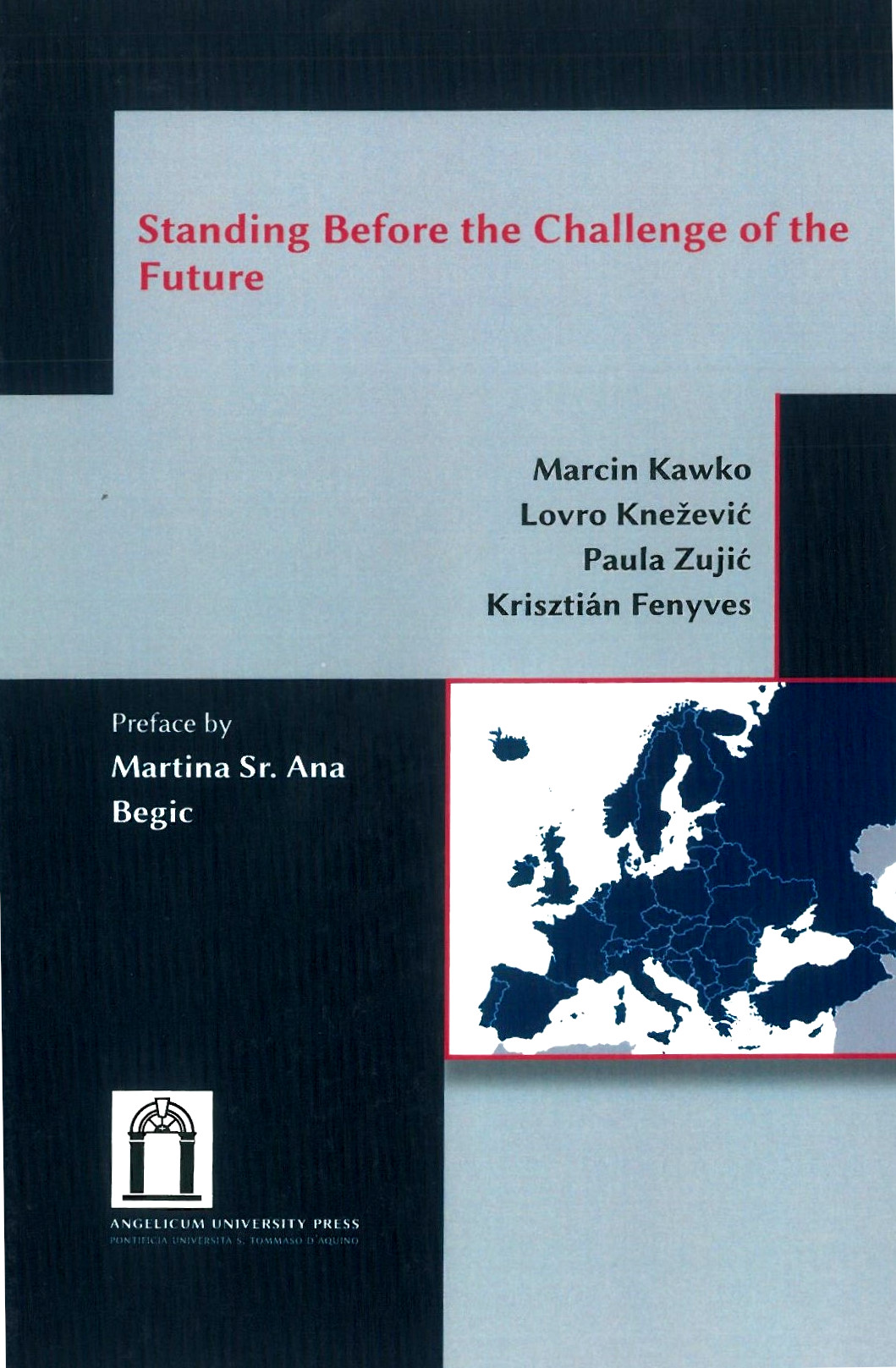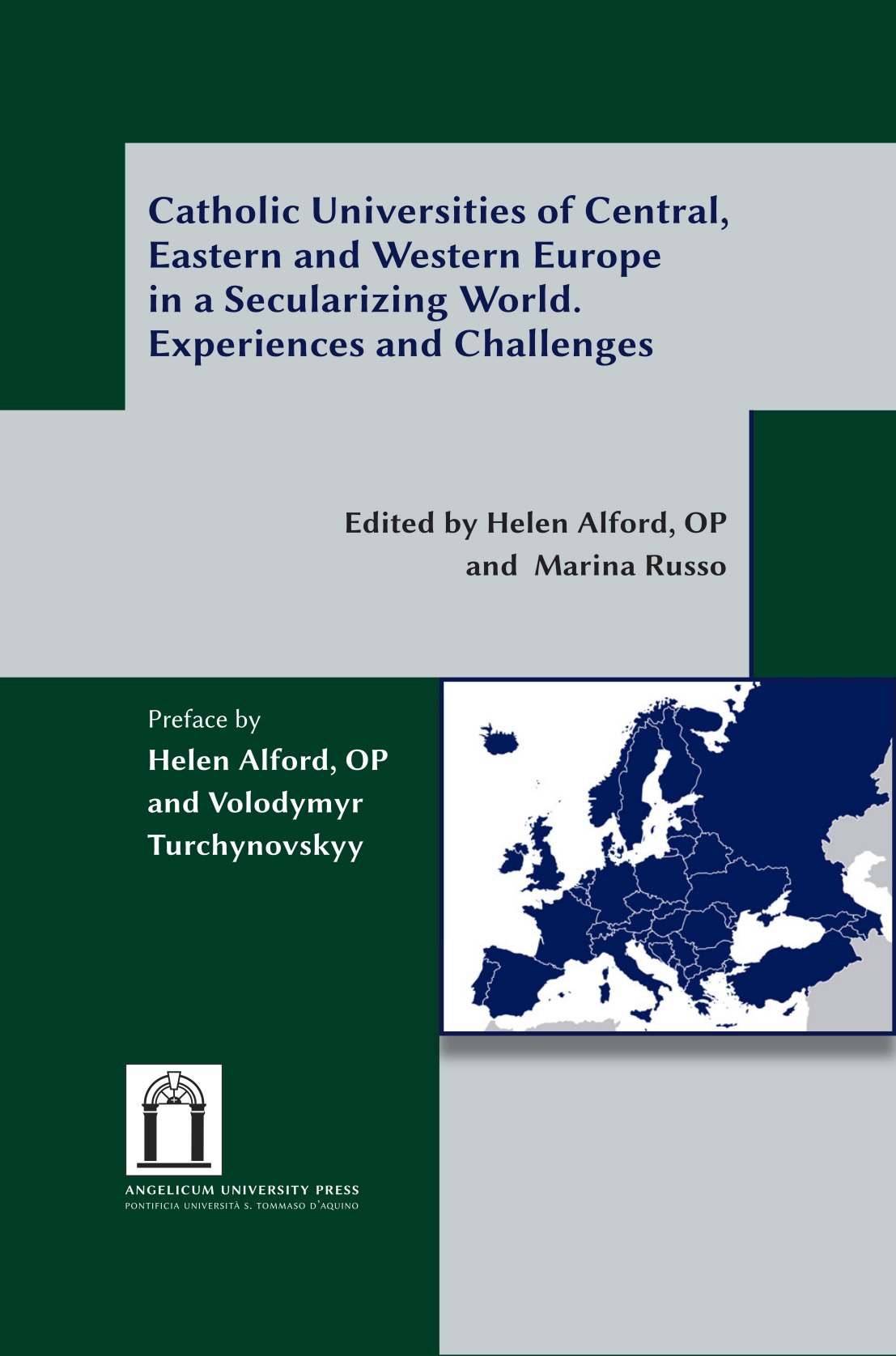Francis Stratmann,O.P.,
War and Christianity Today,
Blackfriars Publications London, 1956
There is a universal loathing for the mounting depravity of modern war. Repugnance reached its height at the end of the second  world war, when the first atom bomb was released and the effects of this new weapon became apparent. Even with the use of earlier bombs, phosphor and aerial mines, V1 and V2 missiles and the technique of “saturation bombing”, previously unknown destruction was achieved. In a new war the horror of devastation spread still wider.
world war, when the first atom bomb was released and the effects of this new weapon became apparent. Even with the use of earlier bombs, phosphor and aerial mines, V1 and V2 missiles and the technique of “saturation bombing”, previously unknown destruction was achieved. In a new war the horror of devastation spread still wider.
What does ethics teach about this new instrument of utter destruction? Accustomed to abstract thought, moralists raise the question whether the atom bomb is evil “in itself” and “by its nature” and hence, if so, never to be used. Some moralists answer the question yes, others answer no. The letter, who do not term the atom bomb evil “by its nature”, offer the following reasons: “The mass destruction (atomic) weapons as developed and produced in 1945 are not by their nature destined for the killing of innocent people, and they are not so uncontrollable that one would have to say man has lost his mastery over them, as may be the case with the nuclear weapons discovered later.”
I consider this reasoning mistaken. Why say “the (hitherto available) mass weapons are not by their nature destined for the killing of innocent people’ if they do in fact and intentionally kill multitudes of innocent people?
A pocket-knife is “by its nature” intended only for cutting; but if I actually and intentionally use it to stab a man, it is no different from a dagger. A hunting rifle is by its nature meant for shooting wild animals; but if I deliberately shoot a person with one, it is no longer different from a soldier’s rifle. I may not make this use of objects that are “by their nature” unobjectionable. What matters is the use and the intention, not the thing. That previous atom bombs were not destined for the killing of innocent people, nor need be so in the future, cannot be granted. The bomb dropped on Hiroshima had “by its nature” to kill unarmed non-combatants, women, old people, the sick and children, just as it killed armed soldiers; in fact, the unarmed constituted the great majority. We must continue to call such action “murder”.
To our knowledge, the first to reject flatly the atom bomb as immoral and to request its prohibition were the French Cardinals and Archbishops. Their standing committee made the following declaration on June 14, 1950, in Paris and gave it to press: “…You, and your priests and bishops are all asked emphatically whether we condemn the use of the atom bomb. (Rockets, radio-active gases, and biological poisons have already been discussed). To the disciples of Christ, such a question represents an infuriating scandal. As Pope Pius XII said two years ago, everyone who has any real feeling for humanity can only condemn the use of all modern weapons which strike combatants and the civil population without distinction and spread death blindly over areas which daily become larger, as the scientific power of men increases. As for ourselves, we condemn these weapons with all our strength, just as, during the last war, we did not hesitate to condemn the mass bombing attacks that were aimed at military targets, but struck equally at old people, women and children. We are convinced that mankind has dishonoured the intelligence God has bestowed on it, since science, which could be so productive of good, has been turned to evil. Accordingly, we bid those statesmen who in this hour have a truly overwhelming responsibility, not to give in to the fearful temptation to use these destructive weapons, and to do everything to reach an agreement to prohibit absolutely their employment…”.
Unfortunately, physicists, chemists and engineers have not hesitated to further develop the murderous atom bomb. Hydrogen bombs have been constructed, and along with them, new unnamed chemical and biological instruments of destruction. Pius XII, in his Easter address of 1954, characterized them thus: “They are capable of causing the total extermination of all plant and animal life and of all the works of man over ever wider regions. These weapons now make possible a sustained contamination of the atmosphere, the earth and the oceans with artificially produced radio-active isotopes of extended half-life; this even in areas far from the zones directly stricken and contaminated by the nuclear explosions. (The half-life of strontium 90 is 20 years). Thus before the eyes of a terrified world there is presented a preview of gigantic destruction, of extensive territories rendered uninhabitable and unfit for human use. One thinks too of the biological consequences that can result, either through the changes brought about by germs and microorganism, or through the uncertain effect a prolonged radio-active stimulus can have upon higher organism, including man, and upon their descendants. In this connection we do not wish to omit a reference to the danger that could result for future generations from genetic mutations, attainable or perhaps already attained by new means of deviating the patrimony of man’s hereditary factors from their natural development.”
In view of such consequences, even those who hold that use of the atom bomb is not “in itself evil”, and hence permissible under certain circumstances, will doubtless grant that with the hydrogen bomb, the limit of what is allowable has been overstepped. Men have no right to destroy God’s creation. Such actions are incomparably worse than even the most frightful of past wars; they amount to an attack on the structure of the universe and hence a direct assault on the majesty of the Creator and Lord of the world. The use of these appalling weapons against any people is a hostile act of the worst sort against God; it flies in the face of common decency and still more of Christian morality.
Let us suppose for a moment that a whole nation has made itself seriously guilty (something which today at least is never the case; there are no moral unities that embrace whole nations) and suppose its punishment is justified – even then the employment of these weapons would not be allowed, because their effects would extend beyond the boundaries of this nation and involve other peoples.
It is provoking to the man of sound moral perception when, as can certainly be expected, here too moralists outline casuistic possibilities that once again open the back door to permitting the use of even these weapons, a door through which the whole modern destructive militarism would quickly press.
You can say of every moral precept that in countless cases it is not observed. But generally, the traditional moral code Christian West, whereas on the other hand, from the total picture of war-time events we can assert that war is almost routinely unconcerned with the commandments and quite openly claims an autonomous law of its own. Besides, since ancient times, every warring faction has proclaimed its war just, even though unleashing a brutal war of aggression.
Tacitly or quite frankly, the maxim “my country, right or wrong”, which, morally, has not a leg to stand on, is controlling: a clear upholding of government policy over morality. It is a great scandal when in warring lands Churchmen’s attitude toward “our country’s cause” is hardly different from that of political parties.
To close this chapter, we refer to its beginning. We recall the truth that before God there is no “natural” order willed by him and founded on Christ. Even the State is bound by all the commands (not counsels) of Christ, hence too by his “first and greatest”, that of love. Thomas Aquinas treated the question of war (very briefly) in his great tract On Charity, as one of the sins opposed to that virtue. We might prefer to look for his treatment of war in the tract On Justice, and it is significant that Thomas, as a matter of fact, in dealing with in the middle of his tract On Justice, spoke only in terms of justice, not of love. Nevertheless, an unjust war is a sin against love too. “Is it always sinful to wage war?” is the title of the first article in this tract. Now there are many lapses which are not indeed sins against justice, but are offences against love. It is perfectly ”just” for someone to insist on being repaid an agreed-upon loan; and yet with this justice he can sin grievously against love, in case the poor debtor is in great need. At any rate, it is unimportant whether you are cast into hell because of injustice or lack of love.
How can war and all war-like deeds be reconciled with Christ’s command of love? Must not this question stand in the foreground, at least for Christians? And non-Christians also are judges by the command of love. Yet the question surprises even faithful Christians. For in the international sphere, their thought too and consciences are so secularized that the challenge to let love rule even here (over justice) seems to them almost too much.
And yet there is no dual morality, one for personal, another for national, life. Benedict XV stated this clearly after the first world war: “The Gospel command of love has the same validity between States as between individual persons” (Pacem Dei, 1920). To carry out this command between regimes, between parliaments, between general staff, may be difficult, especially when a cause for war is present, but nevertheless the individual politician, statesman or general and even the individual soldier can and must be guided by it and will be judged by it.
 IT
IT  EN
EN 
















